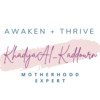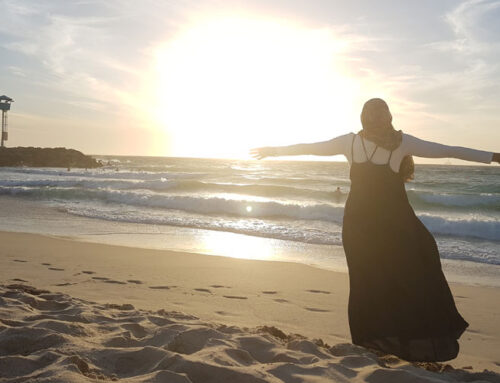I recently embarked on a transformative weekend spiritual retreat, dedicating around 17 profound hours to the study of Surat Al-Ankaboot under the guidance of Doc Hanifaa Yunus.
The experience unearthed ten invaluable lessons pertaining to parenting, each laden with wisdom and insight.
- The importance of reframing our perspective on our children’s actions. Instead of dwelling on their transgressions, it’s crucial to focus on the rewards presented by these trials. With patience (sabr), we recognize that Allah (SWT) knows best why our children or a child can be a test.
- Attachments are the root of all suffering, Ask yourself is my child or another family member more important to you than Allah SWT? Sometimes we put people above Allah (SWT) or extreme people please, which is a minor shirk. Putting what will people think above what is more important than Allah SWT? We are attached to the means and forget the Creator who provides the means. So seek provision from Allah alone, worship Him, and be grateful to Him. The test can be in the means-child, husband, money, phone etc. Do not be reliant only or firstly on the means as it will create false hopes.
- Parents can be a test to their children. Who you are is not your fault, but it is your responsibility to maintain silat al-rahm: the importance of maintaining family ties, especially between parents and siblings. We are not allowed to break this relationship. The lesson is healing the motherhood or fatherhood wound is becomes imperative to prevent perpetuating negativity and protect your relationship as two wrongs don’t make a right. When a believer does so and lets go of his/her ego, they receive Allah’s blessings and mercy.
- Reflecting on the story of Prophet Nuh (AS), I internalised the lesson of persevering through service to others. Keep patience, keep striving, keep going, keep hope. Just as in parenting, maintaining patience, hope, and steadfastness in the face of challenges is crucial. Deadlines imposed on Allah’s timing are counterproductive; patience has no limits except the ones we set.
- Mothers of boys, teach your son about MUSA AS. Teach children to recognise the blessings Allah has given them. Encourage them to write a list of ten blessings other than the basics. Doc Hanifa Yunus told us the story of a boy who came back with the blessing of diabetes. When she asked him, how is this a blessing to you? He replied, “No one has it except me.”
- Allah SWT is most capable of everything and powerful over all things. Teach our children that he can make it easy for them and do not fear or be scared instead turn to reliance on Allah SWT. Teach your children that when they are in their comfort zone, know you’re capable of more. Sometimes you stay in your comfort zone because of your nafs, desires, and comfort yet you were designed to do hard things. Stepping out of our comfort zones, driven by a desire for growth rather than mere comfort, aligns with our design as humans. Believing the circumstances and environment needs to be different in order for you to be different is a way of giving up your Allah-endowed power.
- “The parable of those who take protectors other than Allah is that of a spider spinning a shelter. And the flimsiest of all shelters is certainly that of a spider if only they knew” 29:49. The Lesson for me is the fragile weakest inner home. When you take others as your illahs, you will have a fragile inner home. You will break, and feel weak when you take others’ words for your validation. Relying on others for validation weakens one’s inner foundation and creates self-doubt.
- “And the people of ’Ȃd and Thamûd met a similar fate˺, which must be clear to you from their ruins. Satan made their ˹evil˺ deeds appealing to them, hindering them from the right Way, although they were capable of reasoning.” 29.36. Reflecting on the internal home to remind us to go inward means reflecting on how do you act. Do you act like the people of Nuh AS? People of Salih AS? People of Thumud AS? People of Ad? People of Shuaib? In your daily life.
- When you are always angry you’re giving yourself too much self-importance. The ego is in control. If your reaction is not based on what Allah SWT wants from you, you need to address this. What changes people is your conduct. Change your conduct impacts those around you. Lesson when Dr Haifaa Younis said when parents come to complain to her about their children the first thing she asks them was is there any major sin or haraam in this home? The home is a place where children learn to listen with their ears and hearts. She pushes the message work on yourself, you deserve it. You are worthy to go Jannah by going against your nafs.
- Lost of hope in Allah SWT. If you despair you have failed the test. As for those who disbelieve in Allah’s signs and the meeting with Him, it is they who will have no hope in His mercy. The lesson is investing in your knowledge, growth and healing. Do something for your Islamic knowledge. Do something to help give you the tools to pass the test of parenting. You need to help yourself to obey Allah SWT. Transformative learning is changing the way we see things, changing of the way we live and most importantly, a revisionary of the heart.
- The spaces where we live and work and environments start changing you negatively or positively as they are reflective of our being and have an effect on us. Making hijrah means moving away from anything detrimental to your faith deen. In your community, it means doing hijrah from environments, people, and experiences that impact your salat and iman. Lessons parents can create a negative or positive environment in their interactions with their children. Are you a test or fitnah to other people? The internalised words that we speak communicate what children believe. These lessons collectively form a roadmap to conscientious and spiritually aligned parenting.







Leave A Comment
You must be logged in to post a comment.